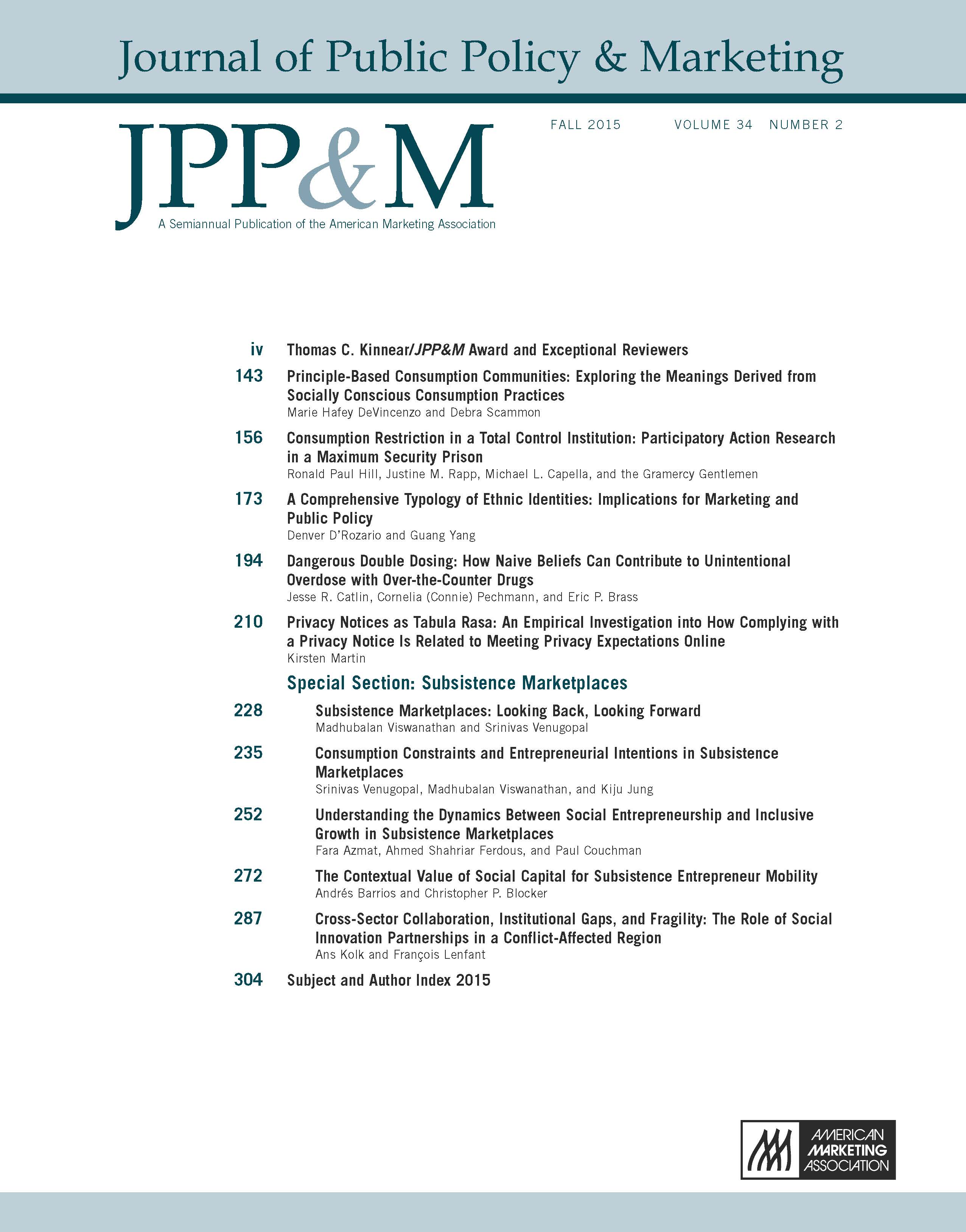Academic articles
Practitioner articles
Working papers
Books
Book chapters
Case studies
Other publications
Subject(s)
Health and environment; Information technology and systems; Technology, R&D management
Keyword(s)
IT security, cybersecurity, e-health, IoT, safety, medical devices
The healthcare industry is undergoing great technological transformations. Hospitals are going digital and medical devices – whether implanted in patients’ bodies or stationed in hospitals – are equipped with increasing computing power and wireless connectivity. Connected healthcare can offer safer, more efficient, and timely medical service delivery. It also presents great economic opportunities – according to a Roland Berger consultancy firm study, the digital healthcare market is set to grow at average annual growth rates of 21 percent until 2020. Yet, the integration of computing and communication technologies in safety-critical medical systems will expose them to the same network and information security (cyber security) threats as other information technology (IT) systems. Research and real-world incidents have shown that IT security risks in healthcare are systemic. Cyber attacks’ impact on the privacy of patient data has already been established. More recently, their potential impact on patient health and safety has been raising concerns for healthcare organizations, regulators, and medical device manufacturers alike. The management and governance of related risks requires comprehensive standardization, regulation, and best practices to encompass both IT security and safety. DSI has analyzed the convergence of safety and security risks in healthcare and the Internet of Things through a review of the relevant literature, as well as expert interviews and a workshop with representatives from health organizations, medical device manufacturers, IT security experts, safety engineers, regulators, and certification bodies. On this basis, DSI has developed recommendations for policy and industry, which are presented by this paper after a short analysis of the current status of security in connected healthcare.
Volume
2017
Subject(s)
Human resources management/organizational behavior; Technology, R&D management
Keyword(s)
Innovation, science, teams, collaboration, scientific credit, science policy
JEL Code(s)
O32, J01
Most scientific research is performed by teams, and for a long time, observers have inferred individual team members’ contributions by interpreting author order on published articles. In response to increasing concerns about this approach, journals are adopting policies that require the disclosure of individual authors’ contributions. However, it is not clear whether and how these disclosures improve upon the conventional approach. Moreover, there is little evidence on how contribution statements are written and how they are used by readers. We begin to address these questions in two studies. Guided by a conceptual model, Study 1 examines the relationship between author order and contribution statements on more than 12,000 articles to understand what information is provided by each. This analysis quantifies the risk of error when inferring contributions from author order and shows how this risk increases with team size and for certain types of authors. At the same time, the analysis suggests that some components of the value of contributions are reflected in author order but not in currently used contribution statements. Complementing the bibliometric analysis, Study 2 analyzes survey data from more than 6000 corresponding authors to examine how contribution statements are written and used. This analysis highlights important differences between fields and between senior versus junior scientists, as well as strongly diverging views about the benefits and limitations of contribution statements. On the basis of both studies, we highlight important avenues for future research and consider implications for a broad range of stakeholders.
Volume
3
ISSN (Online)
2375-2548
Subject(s)
Human resources management/organizational behavior
Keyword(s)
Error management, executive management
Our current environment has been typified as Volatile, Uncertain, Complex and Ambiguous or VUCA (e.g., Bennett & Lemoine, 2014; Horney, Pasmore, & O'Shea, 2010) – even before largely unpredicted developments in the political arena such as Brexit and the US presidential election. It may be argued that organizations themselves become VUCA, witness the accelerating pace at which firms rise and fall (Govindarajan & Srivastava, 2016). In that context, more and more decisions may be analyzed as errors in the making, as errors refer to “unintended and potentially avoidable deviations from organizationally specified goals and standards&x201D; (Lei, Naveh, & Novikov, 2016: 2). Insofar as errors may challenge critical organizational goals and resources, strategic error management becomes a critical challenge for leaders including top executives. Errors are pervasive at all levels of organizations (Hunter, Tate, Dzieweczynski, & Bedell-Avers, 2011; Makary & Daniel, 2016; Panko, 2008), and as we are shifting from managing stable operations to managing innovation and change, errors come in increasing numbers and kinds, with opportunities to learn from them. Errors can no longer be avoided by enforcing stability on organizations; instead, they must be managed as part of the innovation, growth, learning, and change process. This thought- provoking symposium brings together international scholars who share the idea that research on organizational errors and error management may provide insights and inform leaders at the strategic level. Our panelists will offer conclusions from recent research that will interest both scholars and practitioners in this under-explored area, and spark a debate on how to better detect, report and ultimately manage errors, for the benefit of not only organizations themselves, but also hopefully the society at large."
With permission of the Academy of Management
Volume
2017
ISSN (Online)
2151-6561
ISSN (Print)
0065-0668
Subject(s)
Ethics and social responsibility
Keyword(s)
Sustainability disclosure, sustainability report, stock market reaction, information environment, value relevance
Public policy makers seek to enhance disclosure of firms’ sustainability performance, yet firms debate about whether, or to what extent, they should engage in sustainability reporting. This article seeks to advance current understanding about the business returns to sustainability reporting by examining the short- and long-term investor reactions. Through an event study, this research documents significant short-term stock market reaction to the release of sustainability reports. In particular, abnormal stock returns around the release of such reports are positively related to firm sustainability performance, and this positive link is smaller for firms in a strong information environment. The results show that over the long term, relative to nonreporting firms, firms that release sustainability reports enjoy higher value relevance of sustainability performance. These findings suggest that sustainability reports enhance information transparency and allow investors to incorporate sustainability information in stock valuation. This study provides strong evidence for the business case of sustainability reporting, and offers important implications for public policy makers in terms of devising policies and regulations to promote sustainability reporting.
With the permission of the American Marketing Association
Volume
36
Journal Pages
313–330
ISSN (Print)
0743–9156
Subject(s)
Ethics and social responsibility; Marketing
Keyword(s)
Purpose, sustainability, strategy
Pages
99
Subject(s)
Information technology and systems
Keyword(s)
Robust fuzzy extractor, physical unclonable functions (PUFs), helper data manipulation attacks
Volume
PP
Journal Pages
1–14
ISSN (Print)
1545-5971
Subject(s)
Economics, politics and business environment; Finance, accounting and corporate governance
Keyword(s)
Sovereign-bank nexus, bank regulation, sovereign debt, financial integration, banking crisis
JEL Code(s)
G01, G20, G28, H63
This paper develops a new suggestion on how to break the sovereign-bank nexus. This nexus, which is due to significant holdings of domestic sovereign debt by Euro zone banks, endangers financial stability. Our suggestion does not involve pooling and/or tranching and is fully consistent with standard Basel capital requirements. At the same time, it does not require capital provision for sovereign portfolios held as collateral for liquidity operations with the lender of last resort (LOLR). Rather, it differentiates between the purpose of collateral for LOLR liquidity operations and the individual investment decision of which sovereign debt to hold. In this way, our methodology is market-driven and can foster financial integration in Europe.
Pages
17
ISSN (Print)
1866–4016
Subject(s)
Economics, politics and business environment; Information technology and systems; Technology, R&D management
Keyword(s)
IT security, cybersecurity, security law, network and information security, EU law, critical infrastructure protection, government ICT systems
Volume
33
Journal Pages
648–656
ISSN (Online)
2194-4172
Subject(s)
Strategy and general management
Keyword(s)
Competition, status, tournament, Matthew effect
The text of the working paper is available at SSRN.
Subject(s)
Technology, R&D management
Keyword(s)
Physical Unclonable Function (PUF), ring oscillator PUF, TERO PUF, loop PUF, Field Programmable Gate Array (FPGA)


